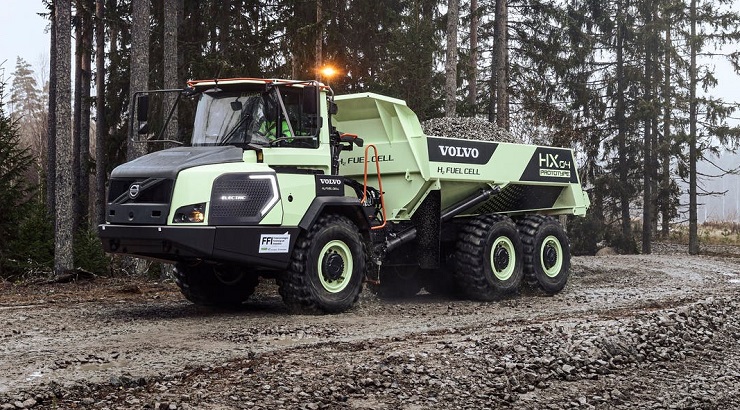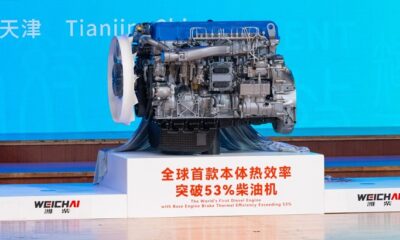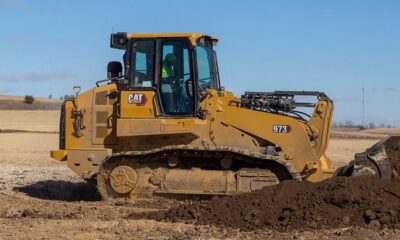Heavy Equipment
World’s First Hydrogen-Powered Artic Dump Truck
The six-wheel Volvo HX04 can be filled with hydrogen in 7.5 minutes.

Volvo Construction Equipment (CE) is testing the world’s first hydrogen-fuel cell articulated dump truck as it seeks to embrace alternative fuels in race to cut greenhouse gas emissions.
Volvo CE, which invented the world’s first articulated dump truck “Gravel Charlie” in 1966 is eying another first in the form of a hydrogen hauler, which is nicknamed “Electric Charlie.”
According to the Swedish equipment company, the Volvo HX04 – a six-wheel prototype dump truck, adopts hydrogen-electric fuel technology developed by FuelCell Sweden AB.
The fuel cells generate electric energy and heat using hydrogen and oxygen from the atmosphere – doing away with the need to plug the machine into a charger.
The fuel cells capture the chemical energy from hydrogen and oxygen as they react to form water. The emitted energy is used to power the dump truck.
The Volvo HX04 weighs 35 tons and can be filled with 11.7 kilos of hydrogen in 7.5 minutes. The dump truck can operate for four hours before refuelling.
“Vehicles with fuel cell electric powertrains have an uptime, range and fuelling time similar to that of combustion-engine powered vehicles,” Volvo said in a statement.
RELATED: Volvo’s Plan to Turn Excavators Into Cost-Saving Machines
The hauler, which is the culmination of a four-year research project involving Volvo and partners funded by Swedish government agencies, fills up at a hydrogen refuelling station mounted by Shell at the testing area.
Volvo says the testing will provide important insights for future production.
Commercialization of hydrogen-powered Volvo machines is expected in the second half of this decade as the company races to achieve “net-zero value chain greenhouse gas emissions” by 2040.
Why hydrogen?
Construction machines, including dump trucks, are considered significant producers of greenhouse gases. Equipment manufacturers are therefore testing alternative fuels in a bid to get themselves out of the list of polluters.
Hydrogen is being considered as a promising alternative fuel due to its abundance, versatility, and zero-emissions – with only water as by-product.
Besides, the driving range and refuelling of hydrogen fuel cell vehicles (FCVs) is comparable to that of diesel vehicles unlike electric vehicles that require hours to charge and provide significantly lower driving range.
RELATED: Caterpillar to Roll Out 100% Hydrogen Generator
The current equipment prototypes use hydrogen in two ways: either as fuel cells that charge battery-electric machine, or to fuel an internal combustion engine.
In a hydrogen fuel cell system, hydrogen and oxygen react to generate electricity – releasing only water as a by-product. In the second technique, hydrogen is used as a direct engine fuel just like diesel.
Some of the machines under development include:
- Volvo’s just-announced HX04 articulated dump truck (fuel-cell)
- Sany dump and mixer trucks (fuel-cell)
- JCB’s 20-metric-ton 220X excavator (fuel-cell)
- Komatsu 930E 291-ton mining truck (fuel cell)
- Hyundai excavators and forklifts (fuel-cell)












